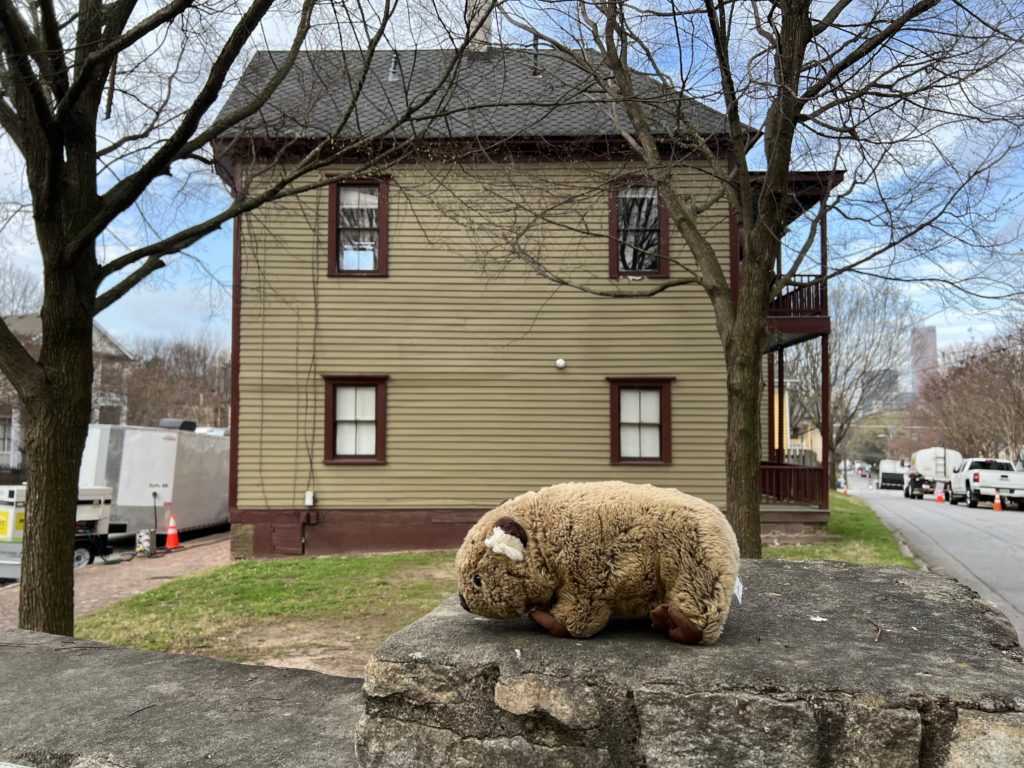
This is the fourth in a series of seven articles about my 9 month trip through the Southern US.
I lived in Atlanta for one month in March 2022. These are my thoughts.
Bubble Neighborhoods
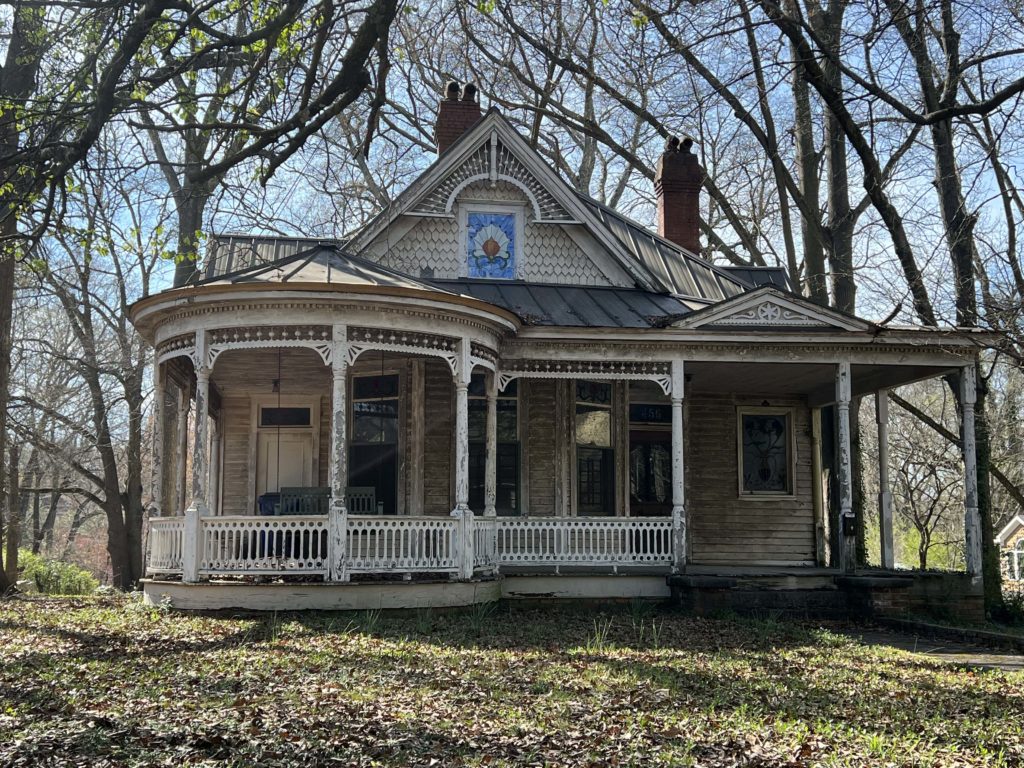
While I haven’t visited all the neighborhoods in Atlanta, the ones I did visit seemed like self-sufficient bubbles. Candler Park, the neighborhood I was in, had a trendy assortment of cafes, bars, restaurants and grocery stores all within walking distance from each other. While it was all very pretty and peaceful, there was also a feeling of insularity that I just couldn’t shake. It was almost as though each neighborhood was its own feudal realm and while the overlords of these neighborhoods might pledge allegiance to the greater realm of Atlanta, each neighborhood really felt like its own polity.
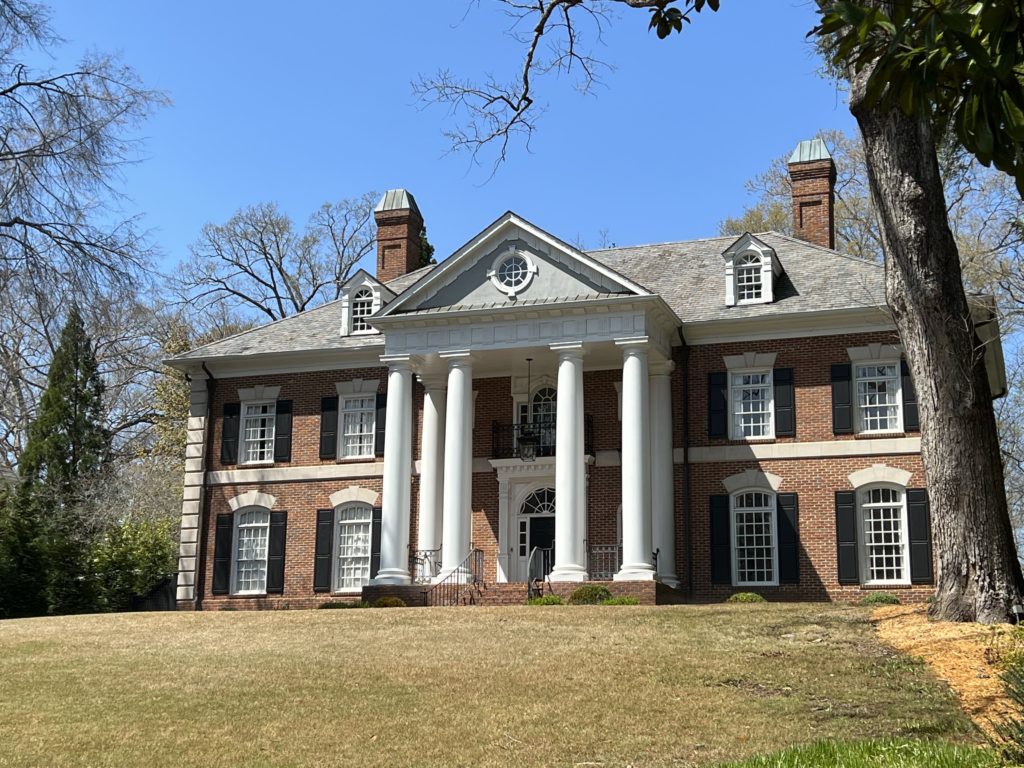
This feeling of insularity became more pronounced when my regular jogs took me through the extremely well to do neighborhoods, where every other McMansion had gaudy neoclassical columns adorning them, a style which to me can’t help but evoke visions of the estates of slave plantation owners. In most cities I had visited so far it didn’t take long for me to stumble upon impoverished neighborhoods, I’m sure they exist in Atlanta as well, but from Candler park I could run 5 miles in any random direction and never come across any. Atlanta is a big city, and the neighborhoods are big too. You need to get into your car and set an intention to drive somewhere where people live differently than you. I’m certain that rarely happens.
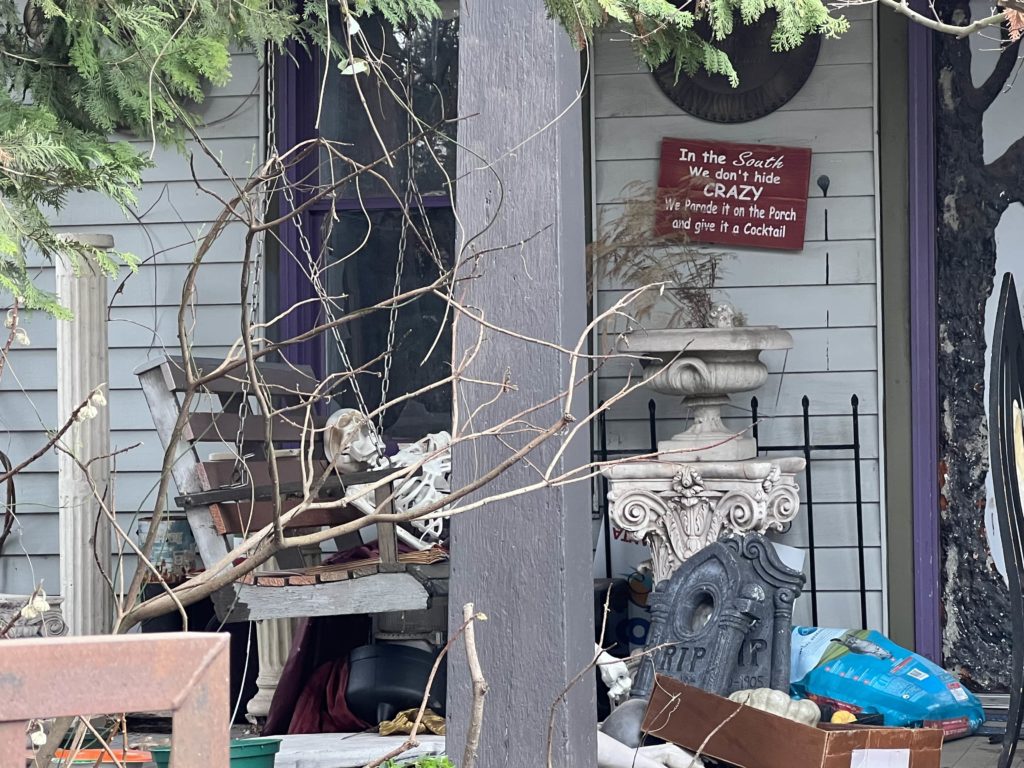
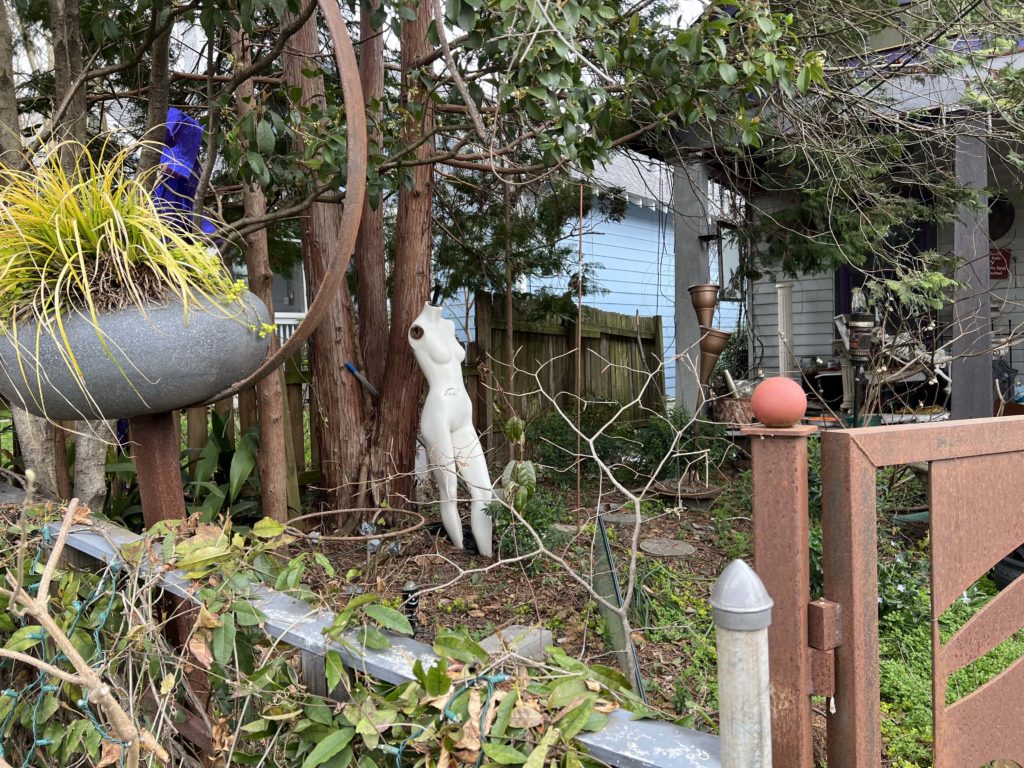
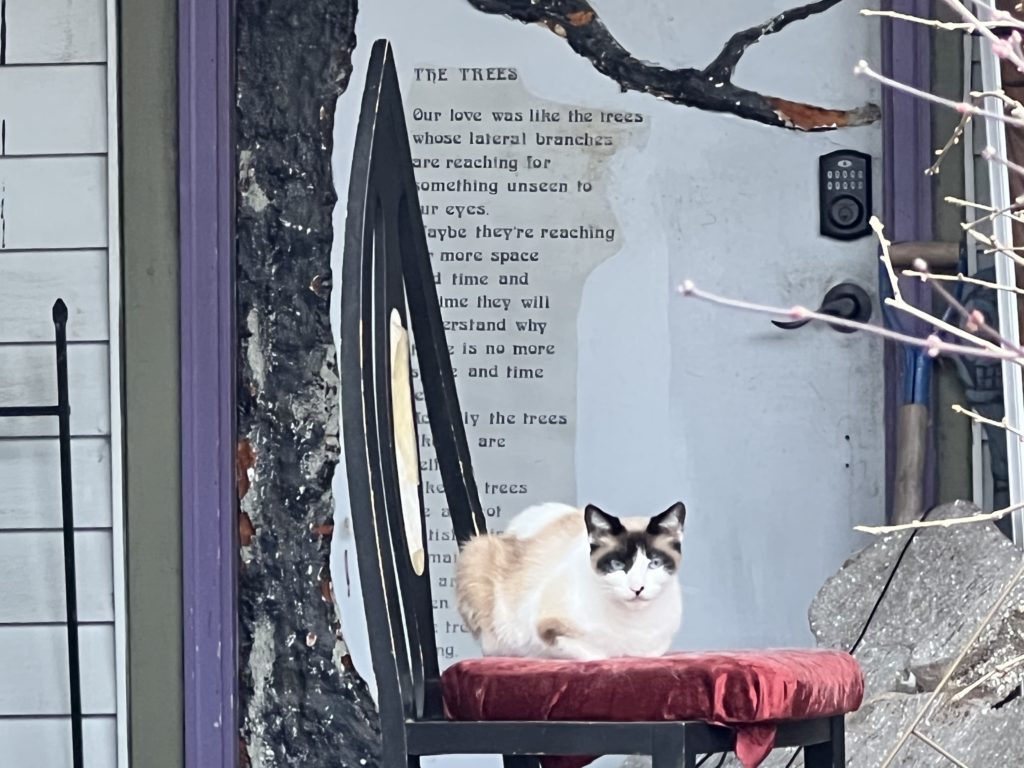
The Beltline
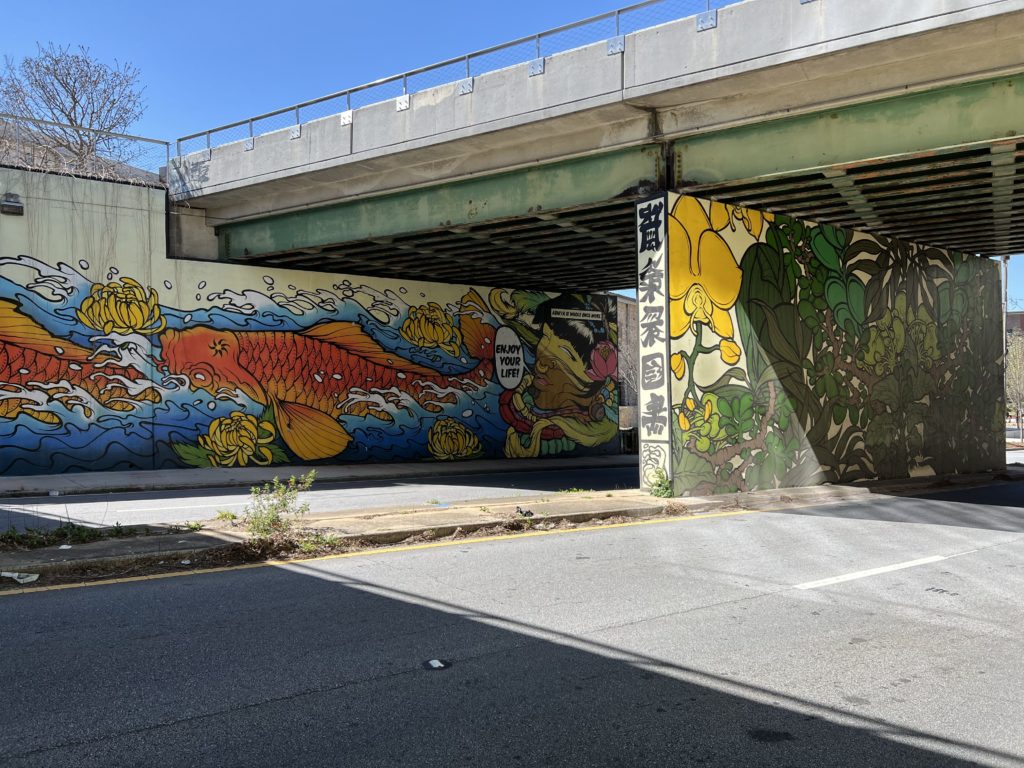
The beltline is a paved jogging, biking and running path that encircles the center of the city. Parks, restaurants and funky art installations cluster around it. Of all the urban paths I’ve found on my trip here, this would be my second favorite next to the San Antonio riverwalk. The Beltline also appears to be the one thing that connects all the disparate bubble neighborhoods of Atlanta in any meaningful way.
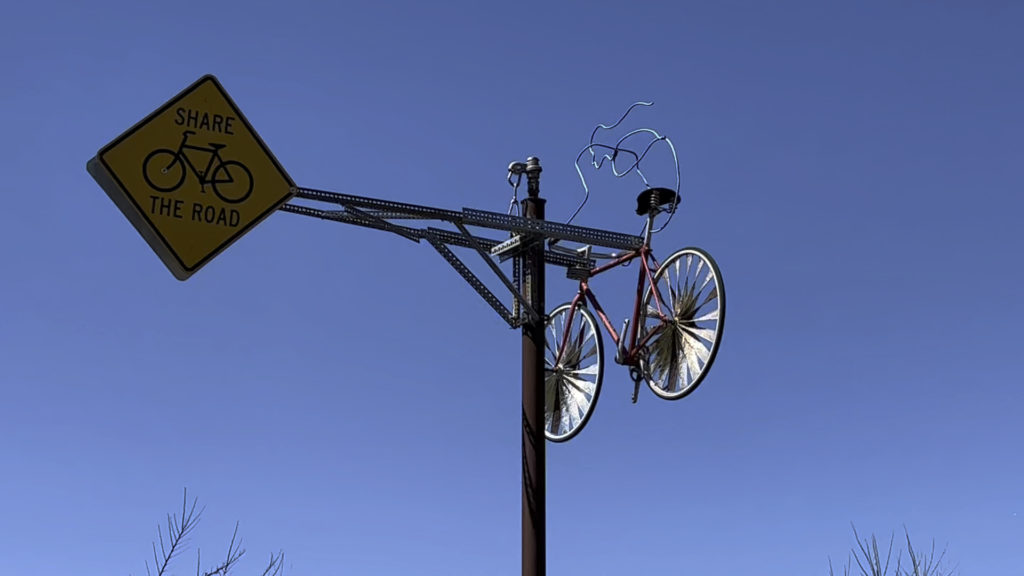
Social Scene
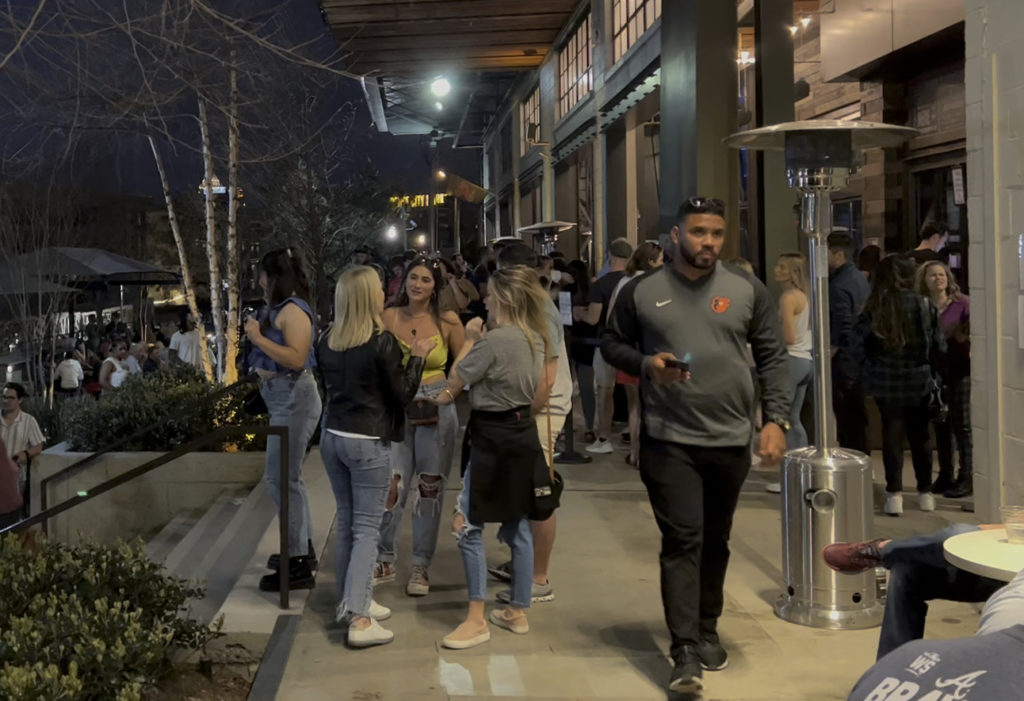
Maybe it’s the warm weather. Maybe it’s the “post-COVID” (Heaviest possible quotes here) euphoria that incited people to socialize more, but I feel as though I had met more people over a weekend in Atlanta than I had on my whole trip. I’ve been using meetup to meet with locals in each place I visit, and Atlanta had more interesting meetups than in any other city I had visited.
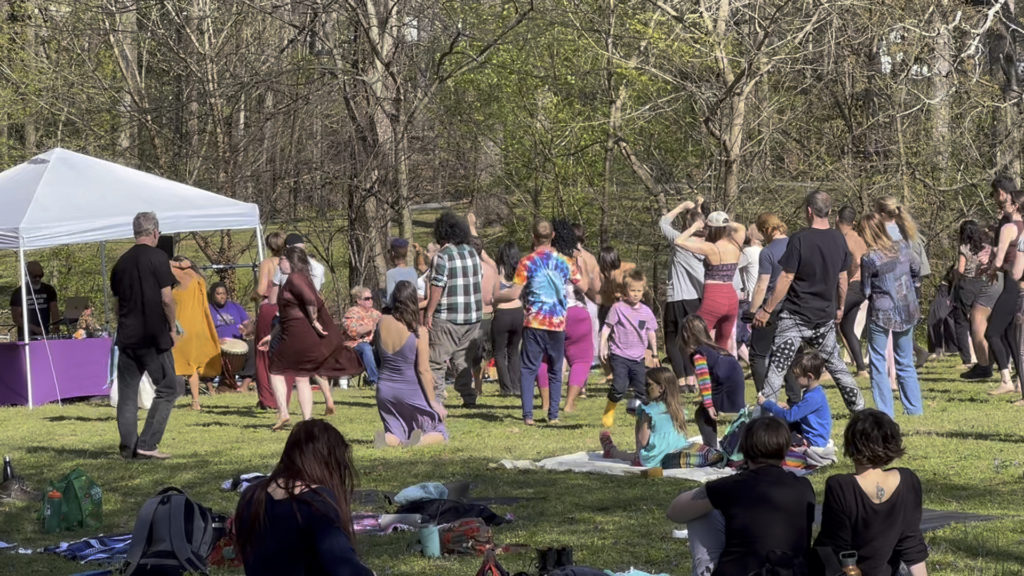
Food
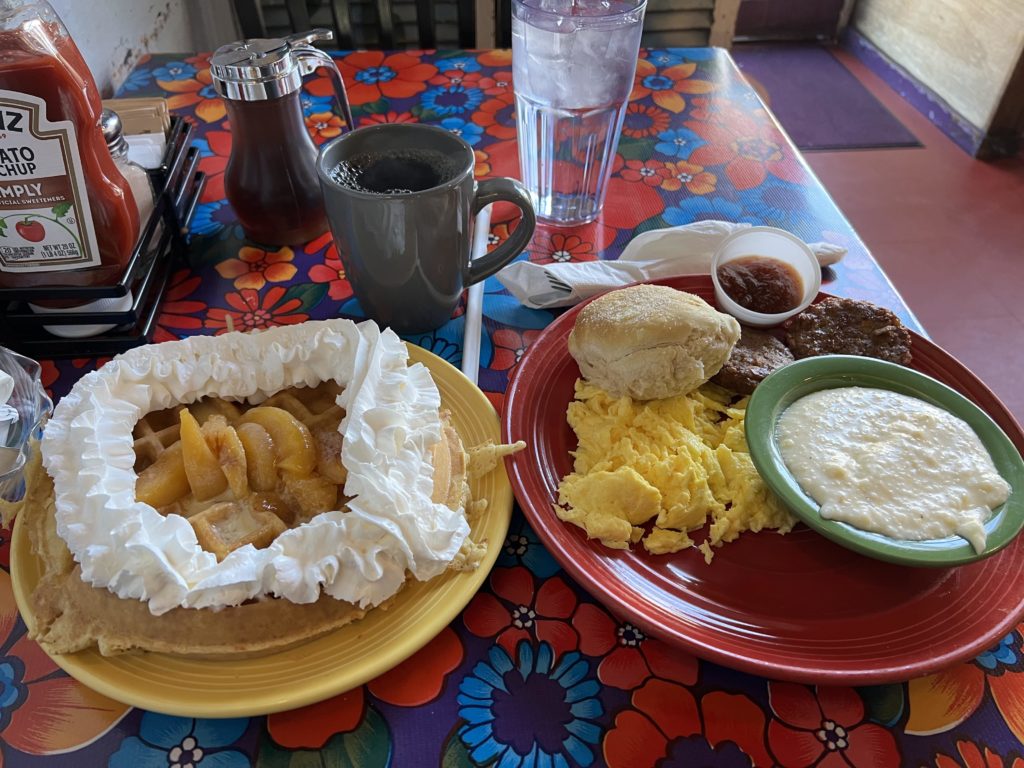
I had the best biscuits and the best grits I ever had in my life in Atlanta. I also had some incredible tikka masala curry with buffalo mozzarella. The number of restaurants are unfathomable here, and while I’d say the food in New Orleans is better, the food in Atlanta has more variety. One innovation I found particularly interesting were these yawning complexes that I can only classify as “Yuppie Food Courts”. These were very large buildings with food stalls serving Sushi, Cuban Sandwiches, Falafels, and like. Some of these complexes were less food focused and more booze focused and because it was sunny Atlanta and not rainy Seattle, there was a generous amount of outdoor seating. These places were packed, and it wasn’t unusual to see the dedicated parking structures for these complexes completely full.
A City in Search of its Soul
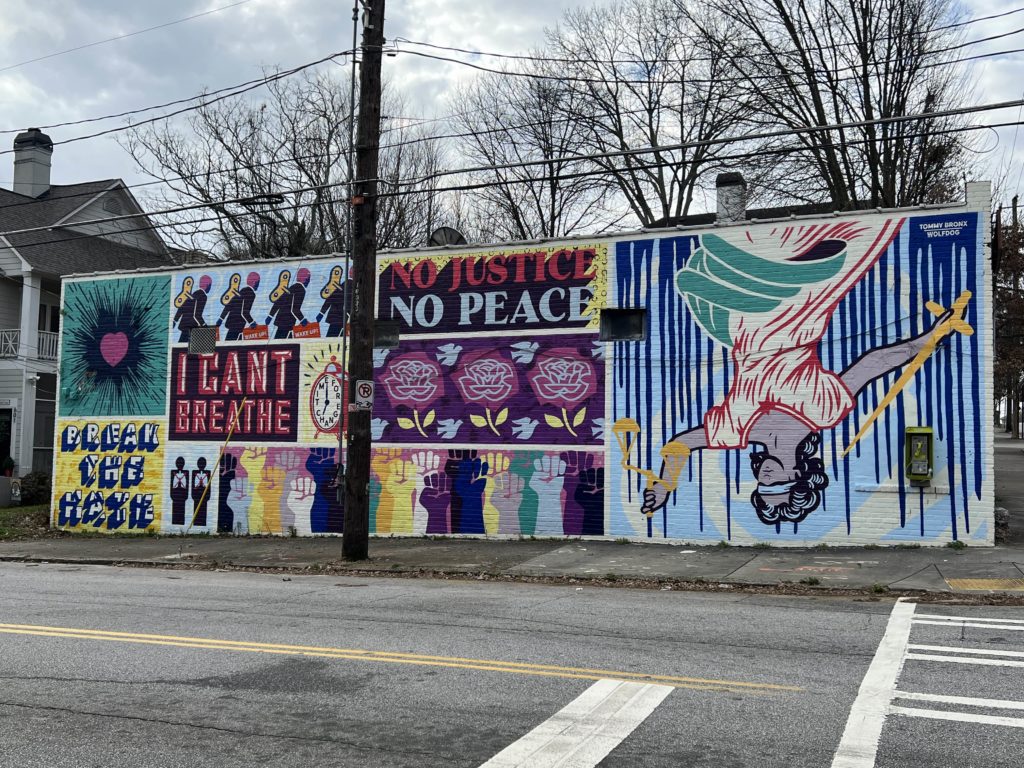
When I talk to people who are critical of Atlanta, or who compare it to other cities they’ll say that that Memphis, or Asheville, or Seattle has a soul, which implies that Atlanta doesn’t have one. I think this is overly harsh, but I also think there is some truth to it.
A city has soul when there are defining characteristics of that city that sets it apart from other places. There is a human energy to the place that transcends the humans who created. It makes it more than just a place where people congregate and live.
One of the most important ingredients of a city’s soul is the reason that people decided to settle there in the first place. In Ancient Egyptian cities the floodplains on the Nile provided a reliable source of grain. In New Orleans it was the shipping gateway from the ocean to all the many tributaries of the Mississippi river reaching deep into the heart of the North American continent.
Atlanta had no such reason. It just so happened that Atlanta was the spot where some major railroads intersected. It’s almost like a child grown in a test tube from two parents who had never met.
As cities go, Atlanta is still very young, and I get the sense that it doesn’t know what it wants to be when it grows up yet. As the birthplace and home of Martin Luther King Jr., it has distinguished itself as a important place in the history of Civil Rights–work that continues to this day, and while the birth home and Tomb of MLK are very special places, they almost feel as though they are removed from the city–as though the Atlanta of today can’t lay claim to them just yet. Perhaps it’s because the work he stood for is so far from being completed.
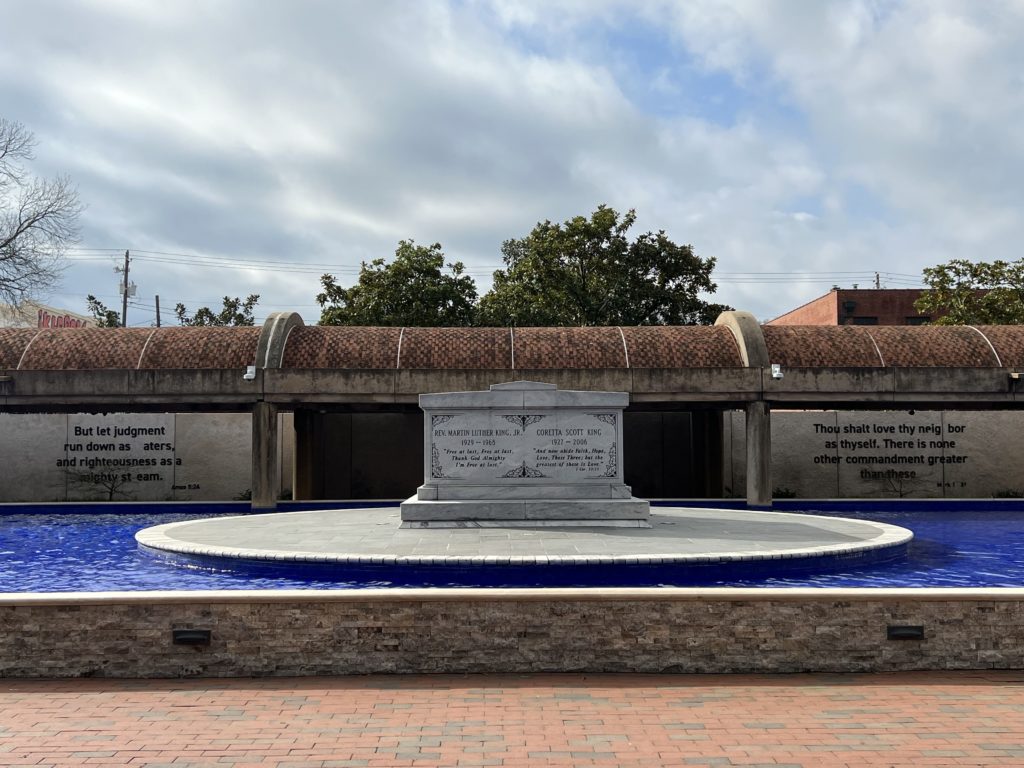
There are other elements to Atlanta that hint to a burgeoning soul: the vibrant rap scene, the very active media and film industry, and the ongoing fight for equity that we can see spearheaded by those who have carried on MLK’s torch. All of these have the potential to leave an indelible mark on the soul of Atlanta. We will have to wait and see.
I give Atlanta 3 stars–at least for the moment.
Previous Stop: New Orleans
Next Stop: Asheville
Leave a Reply